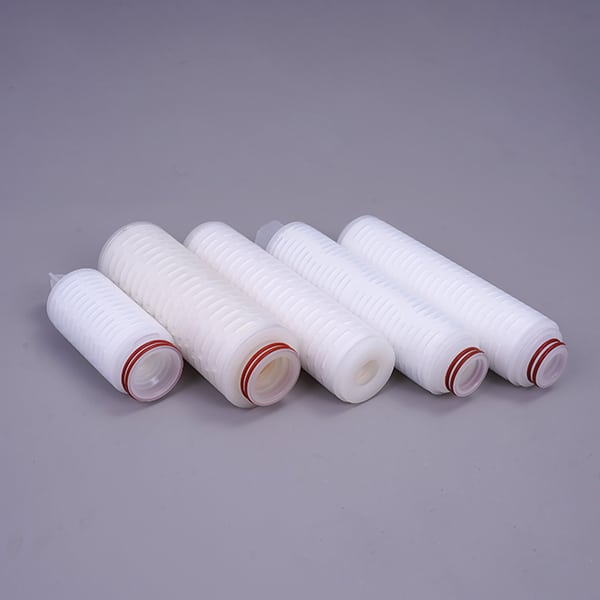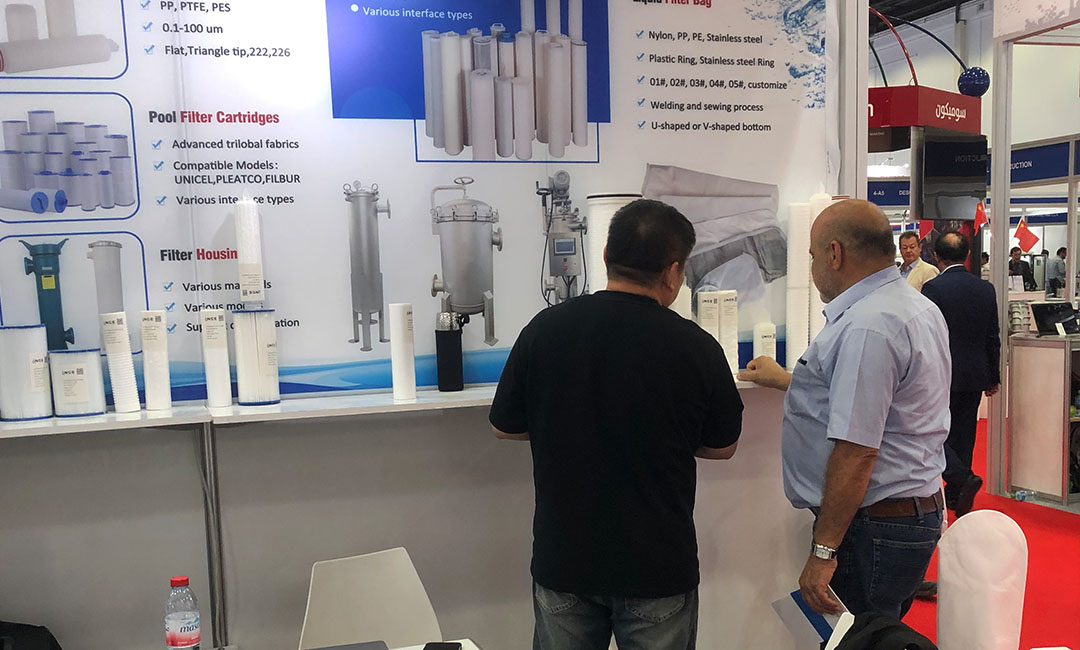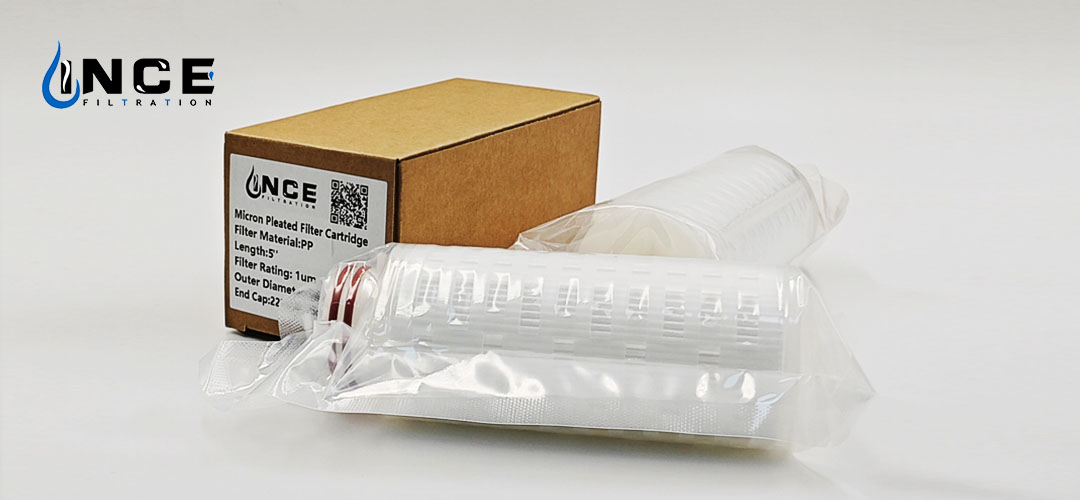
Industrial Pleated Filters: The Backbone of Reliable Industrial Filtration
Benefits of Using Industrial Pleated Filters in Manufacturing Processes
Industrial pleated filters are an essential component in many manufacturing processes, serving as the backbone of reliable industrial filtration systems. These filters play a crucial role in removing contaminants and impurities from various fluids, ensuring that the end products meet the required quality standards. In this article, we will explore the benefits of using industrial pleated filters in manufacturing processes and why they are considered indispensable in the industrial sector.
One of the primary benefits of industrial pleated filters is their high efficiency in capturing particles and contaminants. These filters are designed with a large surface area and a dense pleated structure, which allows them to trap even the smallest particles effectively. As a result, industrial pleated filters can remove a wide range of impurities, including dust, dirt, debris, and other contaminants, from liquids and gases. This high level of filtration efficiency helps to maintain the purity of the fluids used in manufacturing processes, preventing equipment damage and product defects.
Another key advantage of industrial pleated filters is their long service life and durability. These filters are typically made from high-quality materials, such as polyester, polypropylene, or fiberglass, which are resistant to chemicals, heat, and mechanical stress. As a result, industrial pleated filters can withstand harsh operating conditions and continue to perform effectively for an extended period. This durability not only reduces maintenance costs but also ensures uninterrupted production processes, leading to increased productivity and efficiency.
Industrial pleated filters are also known for their versatility and compatibility with a wide range of industrial applications. These filters come in various sizes, shapes, and configurations to suit different filtration requirements, making them suitable for use in diverse industries, such as automotive, pharmaceutical, food and beverage, and electronics. Whether it is removing contaminants from hydraulic fluids, lubricants, coolants, or process gases, industrial pleated filters can be customized to meet specific filtration needs, ensuring optimal performance and product quality.

In addition to their efficiency, durability, and versatility, industrial pleated filters offer cost-effective filtration solutions for industrial processes. These filters are relatively inexpensive compared to other filtration technologies, such as membrane filters or cartridge filters, making them a cost-effective option for businesses looking to optimize their filtration systems. Furthermore, the long service life of industrial pleated filters means that they require less frequent replacement, reducing maintenance costs and downtime associated with filter changes.
Overall, industrial pleated filters are an indispensable component in manufacturing processes, providing high-efficiency filtration, durability, versatility, and cost-effectiveness. By investing in quality industrial pleated filters, businesses can ensure the reliability and consistency of their production processes, leading to improved product quality, reduced maintenance costs, and increased operational efficiency. With their proven performance and benefits, industrial pleated filters continue to be the preferred choice for industrial filtration applications across various industries.
How to Choose the Right Industrial Pleated Filter for Your Application
Industrial pleated filters are an essential component of many industrial filtration systems, providing reliable and efficient filtration of air, gas, and liquid streams. These filters are designed to remove contaminants and particulates from the process stream, ensuring that equipment operates efficiently and product quality is maintained. With a wide range of options available on the market, choosing the right industrial pleated filter for your application is crucial to achieving optimal filtration performance.
When selecting an industrial pleated filter, there are several key factors to consider. The first consideration is the type of contaminants that need to be removed from the process stream. Different filters are designed to capture specific types and sizes of particles, so it is important to choose a filter that is capable of effectively removing the contaminants present in your application. For example, if your process stream contains fine particulates, a filter with a higher filtration efficiency and smaller pore size may be required.
Another important factor to consider when choosing an industrial pleated filter is the flow rate of the process stream. Filters are rated based on their maximum flow capacity, so it is important to select a filter that can handle the flow rate of your application without causing excessive pressure drop or compromising filtration performance. Additionally, the size and dimensions of the filter must be compatible with the existing equipment and piping in your system to ensure proper installation and operation.

In addition to considering the type of contaminants and flow rate, it is also important to evaluate the operating conditions of your application when selecting an industrial pleated filter. Factors such as temperature, pressure, and chemical compatibility can impact the performance and lifespan of the filter. It is essential to choose a filter that is designed to withstand the specific operating conditions of your application to ensure long-term reliability and efficiency.
Furthermore, the material construction of the filter is an important consideration when choosing an industrial pleated filter. Filters are available in a variety of materials, including polyester, polypropylene, and fiberglass, each with its own unique properties and benefits. The material of the filter must be compatible with the process stream and operating conditions to ensure optimal filtration performance and longevity.
When selecting an industrial pleated filter, it is also important to consider the maintenance requirements of the filter. Some filters are designed for easy cleaning and reuse, while others are disposable and must be replaced periodically. Understanding the maintenance requirements of the filter is essential to ensure proper operation and prevent downtime in your system.

In conclusion, industrial pleated filters are a critical component of industrial filtration systems, providing reliable and efficient filtration of air, gas, and liquid streams. When choosing the right industrial pleated filter for your application, it is important to consider factors such as the type of contaminants, flow rate, operating conditions, material construction, and maintenance requirements. By carefully evaluating these factors, you can select a filter that meets the specific needs of your application and ensures optimal filtration performance and reliability.
Maintenance Tips for Extending the Lifespan of Industrial Pleated Filters
Industrial pleated filters are an essential component of reliable industrial filtration systems. These filters play a crucial role in removing contaminants and impurities from air and liquid streams, ensuring that equipment and processes operate efficiently and effectively. However, like any other piece of equipment, industrial pleated filters require regular maintenance to ensure optimal performance and longevity.
One of the most important maintenance tips for extending the lifespan of industrial pleated filters is to regularly inspect and replace them as needed. Over time, pleated filters can become clogged with dirt, dust, and other particles, reducing their effectiveness and potentially causing damage to equipment. By inspecting filters on a regular basis and replacing them when necessary, you can ensure that your filtration system continues to operate at peak efficiency.
Another important maintenance tip for industrial pleated filters is to clean them regularly. Depending on the type of contaminants being filtered, pleated filters can become dirty and clogged relatively quickly. Regular cleaning can help to remove built-up dirt and debris, allowing the filter to continue operating effectively. In some cases, filters may need to be cleaned more frequently than others, so it’s important to monitor their condition and clean them as needed.
In addition to regular inspection and cleaning, it’s also important to ensure that industrial pleated filters are installed correctly. Proper installation is essential for ensuring that filters operate efficiently and effectively. Filters that are not installed correctly may not fit properly or may become damaged, reducing their effectiveness and potentially causing damage to equipment. By following the manufacturer’s installation instructions and guidelines, you can help to ensure that your filters are installed correctly and continue to perform as intended.
Proper maintenance of industrial pleated filters also includes monitoring their performance over time. By keeping track of how well filters are performing and how often they need to be replaced or cleaned, you can identify any potential issues early on and take corrective action before they become more serious. Monitoring filter performance can also help you to identify any changes in filtration efficiency or pressure drop, which can indicate that filters need to be replaced or cleaned.
Finally, it’s important to use high-quality industrial pleated filters from reputable manufacturers. Choosing filters that are designed for your specific application and that meet the necessary performance requirements is essential for ensuring that your filtration system operates effectively. Low-quality filters may not provide the level of filtration efficiency or durability needed for industrial applications, potentially leading to equipment damage or process inefficiencies.
In conclusion, industrial pleated filters are a critical component of reliable industrial filtration systems. By following these maintenance tips and ensuring that filters are inspected, cleaned, and replaced as needed, you can help to extend the lifespan of your filters and ensure that your filtration system continues to operate at peak efficiency. Proper maintenance of industrial pleated filters is essential for protecting equipment, maintaining process efficiency, and ensuring the overall reliability of your industrial filtration system.

